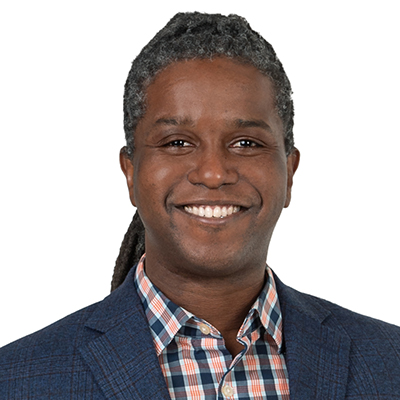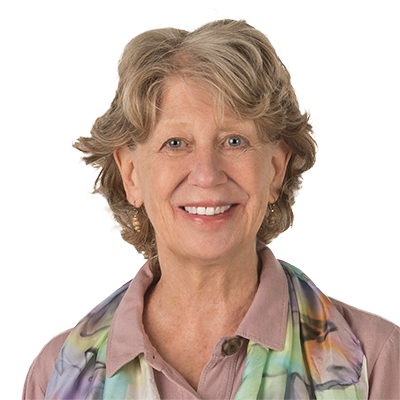Fulbright awards fuel opportunities abroad for social work faculty Gattis, Burnette
One VCU School of Social Work faculty member is currently working abroad in South Africa, and a second will be headed to Mongolia this summer – both as repeat recipients of Fulbright awards.

Maurice Gattis, Ph.D. 
Denise Burnette, Ph.D.
Maurice Gattis, Ph.D., an associate professor, was named a Fulbright U.S. Scholar for Social Sciences and Humanities and has been working in Cape Town, South African, since January as part of a seven-month stay. Denise Burnette, Ph.D., Samuel S. Wurtzel Endowed Faculty Chair in Social Work, was named a Fulbright Specialist and will be in Ulaanbaatar, Mongolia’s capital, from mid-May until late June.
“I think it’s extraordinary,” Dr. Gattis says of the school having two recipients in the same time frame. He previously served as a Fulbright Scholar in 2008-2009 in Toronto as a Ph.D. student, and Dr. Burnette was a Fulbright Scholar in India (2006-2007) and Botswana (2012-2013).
The Bureau of Educational and Cultural Affairs in the U.S. Department of State administers both programs. The Fulbright Scholars Program sends approximately 800 U.S. scholars abroad each year, and welcomes 900 visiting scholars to U.S. institutions. Scholars build connections, gain new perspectives and return with a rich experience to share with students and colleagues. The Fulbright Specialist Program is a short-term complement to the scholars program that supports work abroad for up to six weeks.
Dr. Burnette, who also serves as the director of the School of Social Work’s Ph.D. Program, has ties to Mongolia that go back almost 15 years, having collaborated on social work education and research with colleagues there. “So when my Fulbright Specialist application was approved,” she says, “I was thrilled to discover that colleagues at the National Medical University of Mongolia, which houses the department of social work in health, was seeking a specialist to work with them on developing, implementing and evaluating curricula for this program. In addition, I will have the opportunity to contribute to the development of a community senior center in Ulaanbaatar with my social work colleagues and Buddhist monks.”
Expanding research themes to South Africa
Dr. Gattis’ current Fulbright project is Psychosocial experiences of LGBTQI+ youth experiencing homelessness in the Cape Metropole, South Africa, and he is partnering with colleagues at the University of Western Cape. He previously conducted research there on LGBTQ+ youth experiencing homelessness in South Africa, a geographic expansion of work he has been doing in Richmond with Associate Professor Alex Wagaman, Ph.D.
The two have been working not only with LGBTQ+ youth but also youth of color experiencing homelessness, and the further intersection of pregnant and parenting youth experiencing homelessness. Dr. Gattis wants to facilitate a two-way exchange of knowledge and experiences with colleagues in South Africa.
“Thinking about ideas we have here and thinking about existing ideas there, and really co-learning,” he says. “Sharing challenges, sharing learning in a way that can help strengthen what each country is living with.”
The Fulbright program offers an opportunity for an extended stay in a community. Dr. Gattis’ previous Fulbright allowed him to interview more than 160 LGBTQ+ youth experiencing homelessness in Toronto, which formed the basis for his doctoral dissertation as a Ph.D. student.
His stay in Cape Town will provide a framework for more sustainable action, Gattis says. “What really motivated me was thinking about how I combine my teaching interests, my research interests in a way that has real practical implications,” he says. “So being able to connect my expertise from the United States across the ocean and then thinking about ways to begin to create meaningful impact and change there.”
‘Digging into LGBTQ+ life’
South Africa is more progressive than the United States in some ways, Dr. Gattis says; it is the first country in the world to include protections for LGBTQ+ people in its constitution.
“This is a learning opportunity, to go learn in South Africa,” he says. “Sometimes we think about going to Africa to do service – there is a power dynamic, right? But the deal is, I want to go and learn. What is being done to make sure (the constitutional protections) are being lived in? What did they do to make sure that the practices match the policy?”
Dr. Gattis is also using his presence in Cape Town to lead a study abroad course, Camp QMunity, from March 4-12. Two B.S.W. students, one M.S.W. student and three other VCU students will join two students from the University of Western Cape. The camp will provide an intersectional lens that considers gender, sexuality, race and class, and students will be introduced to themes of discrimination, community building, marginalization, celebration and oppression in South Africa.
“It really is digging into LGBTQ+ life in Cape Town,” he says.
Striking a collaborative relationship
His connections with the university were forged in 2020, when he was considering attending a conference in Cape Town. He reached out to the social work department and met Neil Henderson, Ph.D., one of the country’s researchers looking into LGBTQ+ aging. The Fulbright solidified the opportunity for collaboration.
VCU’s Aaron Kemmerer, a Ph.D. student in social work, and Johan Fourie, a master’s student at Western Cape, are both part of the current project. The study will be presented at the Sexuality and Social Work Conference in Glasgow, Scotland, July 18-19, 2023.
“I want this to be an opportunity to focus on really providing insight into the services that are necessary for the population of interest,” Dr. Gattis says. “And then thinking about how we inform scholarship? How do we do the research? How do we provide service provisions? How do we also create student opportunities for research?
“How do we strike the relationship between the University of Western Cape and VCU? So just really thinking about a holistic way in which we think about teaching, research and service provision across two countries on a particular substantive area in a way that can be actually meaningful and sustainable.”
Dr. Burnette’s career signposts
Dr. Burnette’s previous Fulbright projects were at the Tata Institute of Social Sciences in Mumbai, where she taught M.S.W. and Ph.D. courses and collaborated with interdisciplinary faculty on research on the mental health needs and services for older adults in urban and rural communities in India; and at the University of Botswana Center for Research on HIV/AIDS.
“I regard my Fulbright experiences as singular signposts in a career spent working with colleagues to develop and improve social work education and practice with older adults in low-resource communities,” she says.
Botswana had the highest prevalence rates of HIV/AIDS worldwide and had begun to roll out large-scale antiretroviral therapy, which increased survival and spurred an unexpected aging of the population.
“I worked closely on research and education with public health officials, behavioral health researchers, and community organizations that focused on HIV prevention and treatment, with a particular focus on infected and affected older adults and their families,” Dr. Burnette says.
Her global focus has always been at the fore. Between the two Fulbrights, she served as an international scholar with the Soros Foundation’s Open Society Academic Fellowship Program in post-Soviet states. She coordinated social work and faculty development in the Central Asia/Caucasus/Balkans region, and she worked closely with colleagues in the development of social work departments in regional universities, especially in Albania and Mongolia.
“The most treasured gift of my international work has been the deep, enduring relationships with social work scholars who have committed their personal lives and professional careers to the well-being of their societies and citizens,” Dr. Burnette says.
“Although my Fulbright experiences differ in many respects, I am more struck by their similarities. Different people, different times, different problems – all involving human beings who are striving to assuage and make meaning of challenges that range from personal crises to global pandemics to the need to rebuild whole societies. As Dr. Gattis has suggested, we have so much to learn from one another.”
Categories Community, Education, Faculty and staff, Research, Students